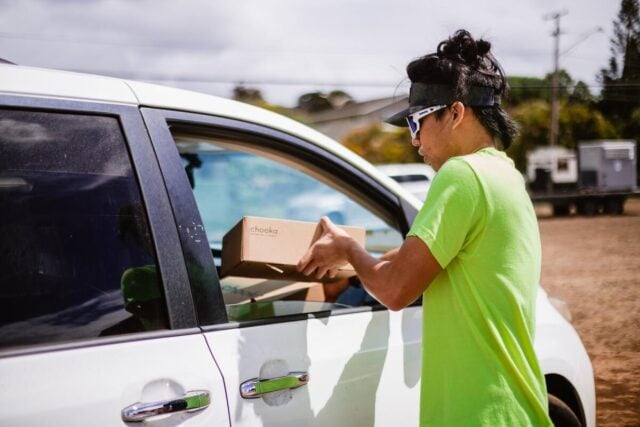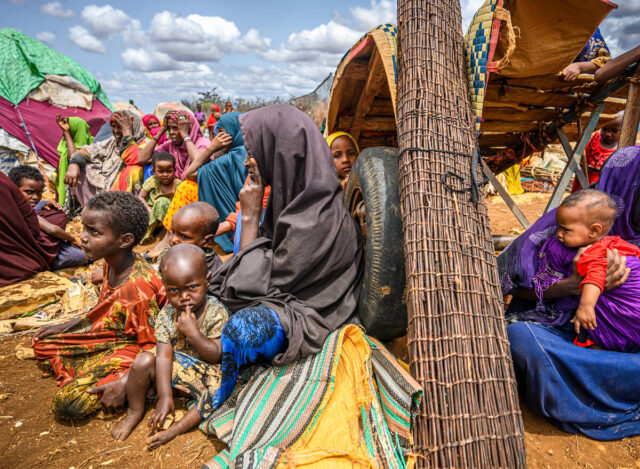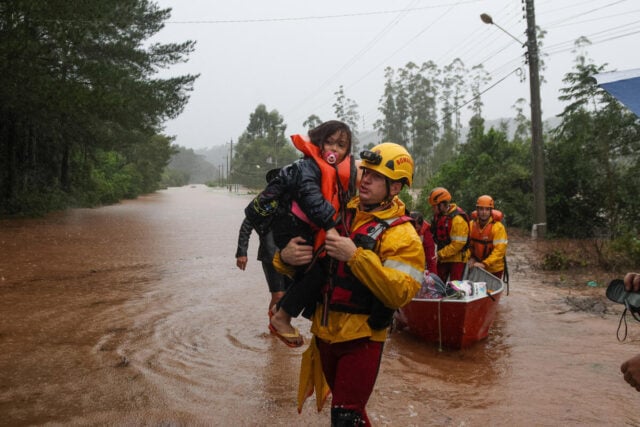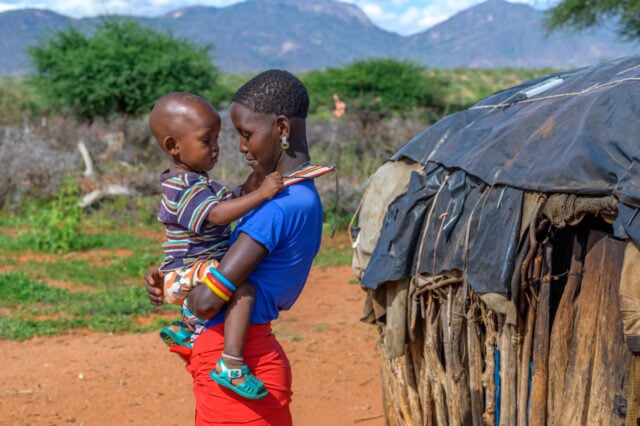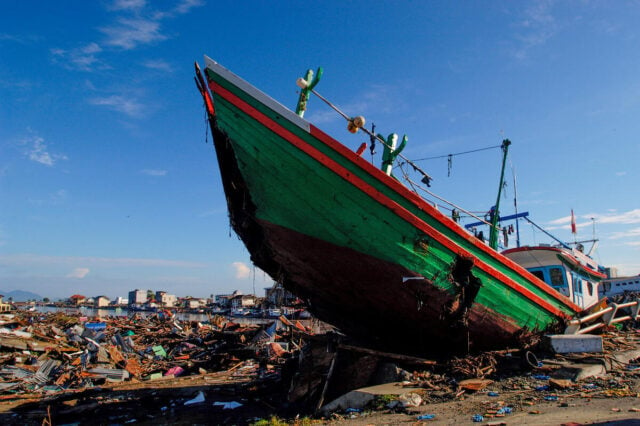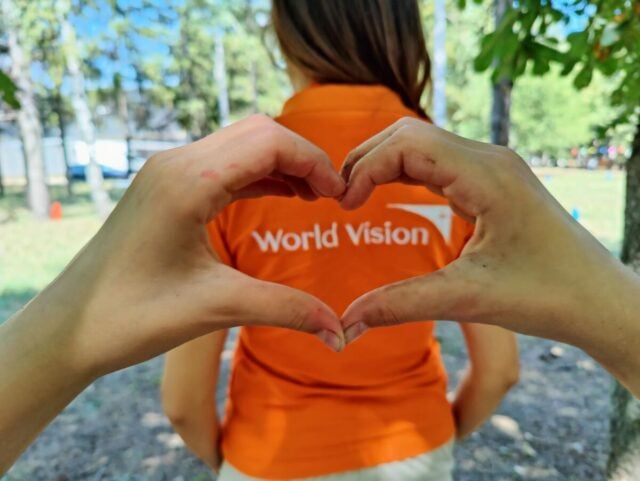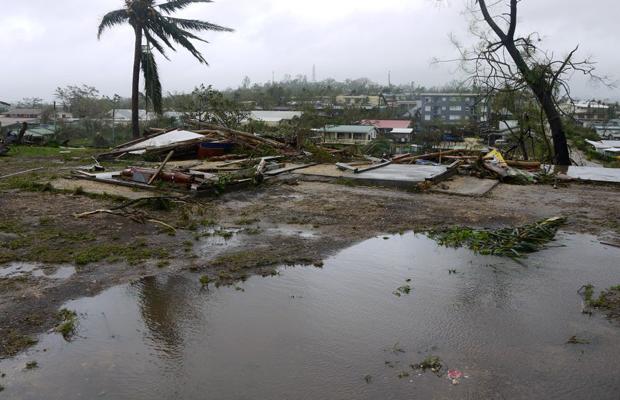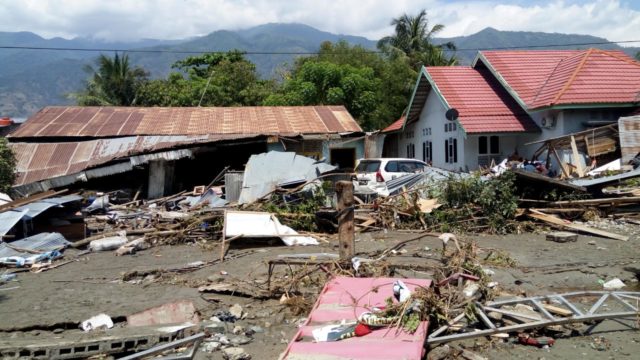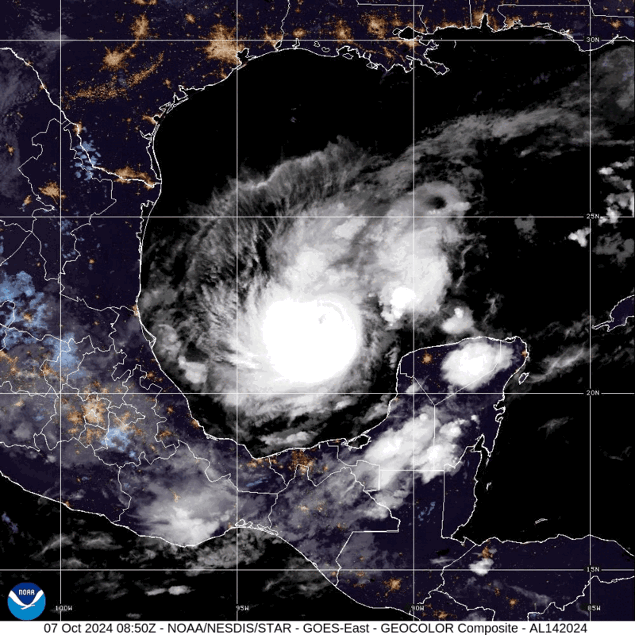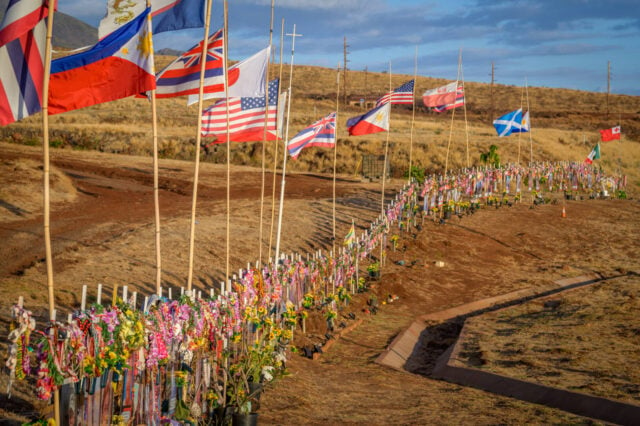Wildfires affect many parts of the U.S. and the world and are capable of decimating landscapes and upending lives and communities. Learn about the causes and effects of wildfires. Explore resources to prepare for unexpected wildfires. Discover how World Vision reaches communities impacted by wildfires and other disasters, and find out ways to help.
News & Stories
Natural Disasters
10 of the top disasters of 2023
In 2023, World Vision responded to 78 disasters in 59 countries, helping more than 35.8 million people with relief aid they needed to survive. Learn more about some of the top disasters of 2023. In the United States alone, our programs also supported over 93,700 people during 15 emergencies.
11 top disasters of 2024
In 2024, tens of millions of people worldwide faced extreme challenges. Floods devastated communities, landslides destroyed villages, and wars and conflict exacerbated suffering, hunger, and poverty. Learn about the top disasters, their global impact, and how World Vision is making a difference in vulnerable communities.
In photos: 24 memorable moments from 2024
In 2024, the lives of millions were upended by war, disasters, and hunger. As World Vision responded, we witnessed courage and resilient hope through encounters with hardship. See incredible images captured by World Vision communicators throughout this year.
From destruction to hope: 20 years after the Indian Ocean tsunami
In 2004, a massive undersea earthquake off the coast of northern Sumatra, Indonesia, triggered colossal tsunamis that inundated coastal areas across the region, catching communities off-guard and causing widespread destruction. One of the most devastating natural disasters in recorded history, the Indian Ocean earthquake and tsunami impacted multiple countries and claimed hundreds of thousands of lives. Read about how World Vision responded and our ongoing efforts in the region.
Crisis worldwide: More refugees’ stories
According to UNHCR estimates, the number of forcibly displaced people worldwide exceeded 120 million in April 2024 — a historic high. Among those displaced, 40% are children. This alarming fact underscores the importance of prioritizing children’s needs amid displacement. We know that all children, including each of the approximately 47 million who are displaced, have inherent worth and God-given potential. Read about three kids currently experiencing displacement, and how they and their families exemplify resilience and unyielding spirit.
2015 Cyclone Pam: Facts, FAQs, and how to help
On March 13, 2015, Category 5 Cyclone Pam unleashed heavy winds and rain on Vanuatu, a string of South Pacific islands. The storm devastated homes, schools, crops, and water systems, impacting more than half of the population in one of the world’s poorest countries. Learn how World Vision responded in emergency relief and recovery efforts to aid impacted communities.
2018 Indonesia quakes and tsunamis: Facts, FAQs, how to help
Discover key facts about the 2018 Indonesia earthquakes and tsunamis, including six events with magnitude 6.0 or higher. Learn more about the devastating impact on millions of people, and how World Vision swiftly responded with lifesaving supplies to help affected communities.
Hurricanes: Facts, FAQs, how to help
Discover key facts about hurricanes, gain a deeper understanding of one of nature’s most destructive forces, learn effective strategies for hurricane preparedness, and explore ways to support people affected by these devastating storms.
Working alongside partners to support Maui relief efforts
World Vision is continuing to support recovery efforts in the wake of the 2023 fires by aiding the work of local churches and community organizations through donations such as boxes of fresh food, household goods, hygiene supplies, and school backpacks.
